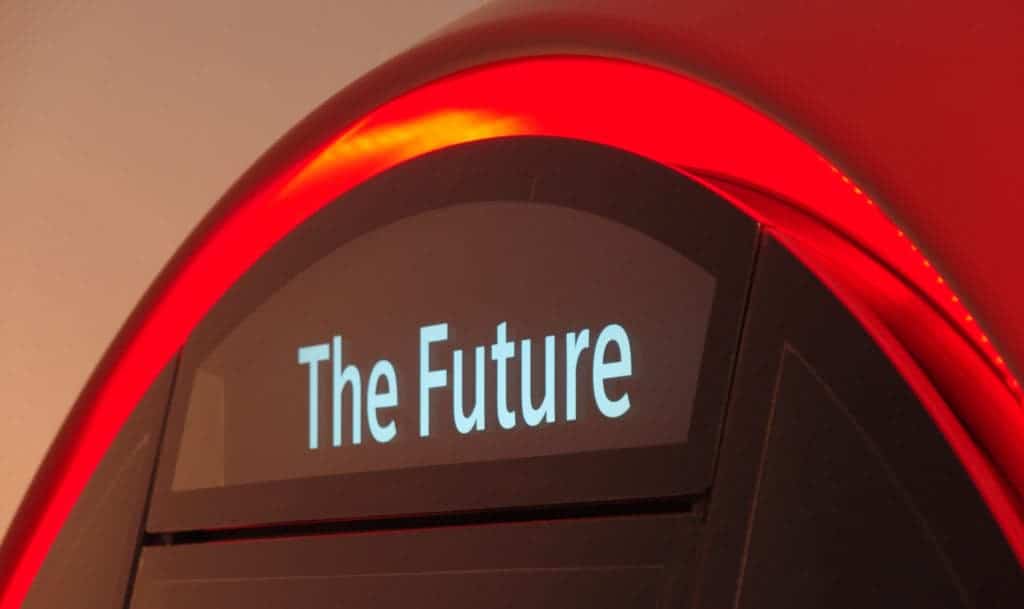The brains of altruists simply don’t function the same as those of egotistical individuals, a new paper reports — and it can influence our choices in profound ways.

Some people do actually worry about future consequences — for example, those of climate change — while others can’t be bothered with something if it doesn’t impact their well-being directly. Wanting to know if these differences arise from the brain, a team of researchers at the University of Geneva (UNIGE), Switzerland, took an MRI (magnetic resonance imaging) machine and peered into the brains of volunteers.
Their results suggest that “egotistical” individuals don’t use the area of the brain that allows us to imagine and insert ourselves into the distant future. Those deemed “altruistic,” on the other hand, registered heavy activity in the same area. These findings, the team reports, could be used to improve people’s ability to project themselves into the future and engage more of the public with issues such as climate change.
Too Long; Didn’t Relate
One of the most fundamental criteria from which individual concerns arise is whether or not somebody prioritizes their personal well-being or puts everybody on equal footing, the team notes. In order to encourage as many people as possible to engage in sustainable behavior, it is, therefore, necessary for them to feel that the consequences of climate change impact them as well. People who are more self-centered don’t give the issue much thought, believing the consequences and potential hardships are far removed from them, both in time and space.
But why is it that some people register climate change as a pressing concern, while others can’t even be bothered with it?
“We wondered what magnetic resonance imaging (MRI) could teach us about how the brain processes information about the future impact of climate change, and how this mechanism differs depending on the self-centeredness of the individual,” says Tobias Brosch, professor in the Psychology Section at UNIGE’s Faculty of Psychology and Educational Sciences (FPSE), and lead author of the paper.
The team started their research from the IPCC‘s (Intergovernmental Panel on Climate Change) 2014 synthesis report. They identified predictions about the outcomes of changing climate based on this document — for example a reduction in drinking water supplies, economic collapse, social upheaval, or increased political instability and violence. Then, they assigned a year sometime in the future for each of these effects — these dates weren’t meant to reflect when the effects will actually make themselves felt, but, rather, to see how subjects react to perceived threats in the near and (most importantly) far future.
Participants were then asked to complete a standardized questionnaire meant to measure their value hierarchies, giving the researchers an estimate of each individual’s selfish or altruistic tendencies. After that, the participants’ brains were scanned with an MRI machine. Finally, they were shown the dated consequences of the events, and were asked to answer two questions on a 1-8 scale for each consequence: “Is it serious?” and “Are you afraid?”.

Image credits
“The first result we obtained was that for people with egotistical tendencies, the near future is much more worrying than the distant future, which will only come about after they are dead. In altruistic people, this difference disappears, since they see the seriousness as being the same,” explains Brosch.
Later, the team focused their investigations on the activity of the ventromedial prefrontal cortex (vmPFC). This area of the brain, located directly above the eyes, comes into use when we think about the future or try to visualize it and our role in it. In altruistic people, the researchers report, “this cerebral zone is activated more forcefully when the subject is confronted with the consequences of a distant future as compared to the near future”. Egotistical people saw no increase in activity when confronted with consequences in the near or distant future.

Image credits
Since the vmPFC is used to project ourselves into the distant future, the absence of any heightened activity in self-centered people suggests that their brains don’t put them in the shoes of someone living in the future and, as such, they simply can’t relate to or feel concerned about what will happen after their death. In this case, they would have virtually no incentive to adopt sustainable behaviors, as they wouldn’t register the collective benefits of such a choice, only their personal cost.
The findings — which the authors note can be applied to all areas of human choice, not just those regarding climate change — show how important it is in a society for individuals to be able to think about the distant future and adapt their behavior to future needs and constraints.
“In our everyday life, we are frequently confronted with situations in which we need to choose between following our egoistic impulses and taking into account the needs of others. Do I spend my money on yet another treat for myself, or do I give it to the beggar sitting on the street corner? Do I buy a powerful SUV car, which is a lot of fun but also quite the polluter, or rather do I invest in an electric vehicle, which is maybe not as much fun, but helps to preserve the environment for future generations? Whether the consequences of our choices for ourselves and others are visible immediately or will only materialize in the future, we need to integrate them into our considerations when deciding,” the paper’s abstract reads.
“We could imagine a psychological training that would work on this brain area using projection exercises,” suggests Brosch. “In particular, we could use virtual reality, which would make the tomorrow’s world visible to everyone, bringing human beings closer to the consequences of their actions.”
The paper “Not my future? Core values and the neural representation of future events” has been published in the journal Cognitive, Affective, & Behavioral Neuroscience.






